Awesome dog illustration images to inspire you
Dogs are called man’s best friend for a reason. It is the first domesticated animal and one of the two most popular pets. It is believed that dogs have been around humans for over 15.000 years.
They are the most widely distributed and abundant carnivores on earth. Whether or not you’re a dog lover, you’ve probably noticed that each breed has its personality and quirks. They’re usually more receptive to our views and beliefs than we are. They understand us a lot within their emotions and body expression.
While being on the creativity subject, why not check some of the dog illustrations. A heartwarming Illustration of a dog’s life will make you want to hug your pup forever. Nothing says unique like custom dog illustrations designed just for you by professional illustrators.
This post gives you some unbelievable and spectacular drawings to show you the dogs drawn in various artistic styles for multiple purposes. Get excited and continue to prepare today’s beautiful photo of the puppy.
How To Draw a Dog Illustration
Do you want to draw a cute dog illustration of your own? If you’re going to draw a cute cartoon or a cartoon of your animal, here is how to do it.
Draw What You See; Not What You Think You Know
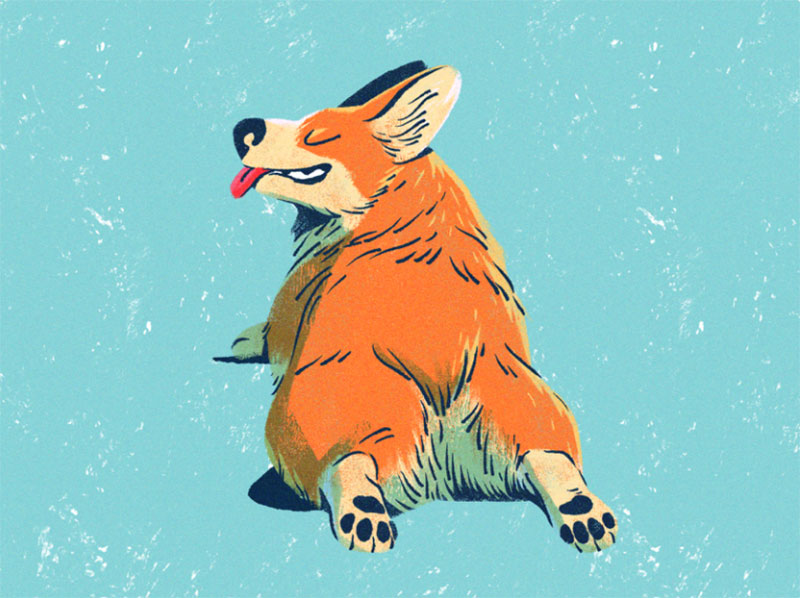
Dogs exist in every size and form. They come in various breeds, colors and sizes. Looking at the specific dog you’re drawing and drawing what you see is important. You don’t have to be an expert in that breed in order to draw it. If you want to draw a dog the right way, you have to carefully take a look at them.
You have to know which breed you want to draw before starting to follow a tutorial. Many different breeds vary in their structure and they cannot be all drawn the same way. Examples of the breed in photographs are studied, noting the distinctive features.
Understand the dog’s body
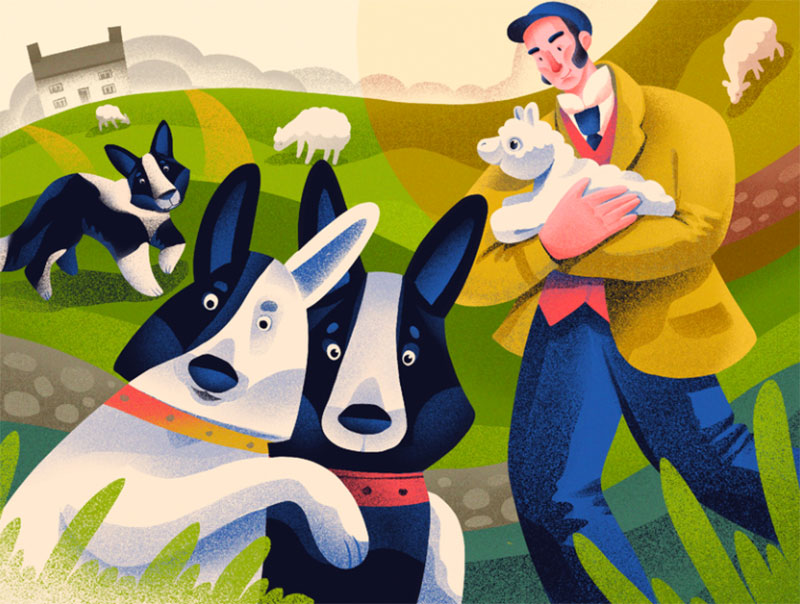
When you begin your dog illustration, you will gradually learn the different structures of the breeds. The dog’s skeleton is somewhat similar to the human frame.
The spine is linked to the head and neck. And the ribs and pelvis are prominent as well. But the hips and neck are bent, and the proportions of the bones are different. Knowing the skeletal structure provides you with a literal and figurative base to build on.
Start drawing small and plain shapes

Create a drawing to capture the animal’s general form before attempting to draw the dog’s features in-depth. Many people who are new to art – neglect and treat the design process as a waste of time. They would also draw one or two pictures and call it a day. It’s swift to be tempted to make this stage accelerate.
To build a rough outline of the body of the dog, use necessary forms. The emphasis on the skeleton is an essential aspect of how you should do your dog illustrations. While nobody can see it, in the end, the structure must be understood and proportionally drawn.
Note that the upper leg bones (femur and humerus) look shorter than the lower leg bones when you draw the legs. Check your sketch for pictures from the reference and change until the proportions are met.
A good exercise is to draw the structure on top of the earlier fast designs before drawing the skeleton in the selection pose. This helps you get to know the skeleton’s concept below any sweet fury in which dogs are wrapped.
Make Sure Your Line Drawing is Accurate and light.
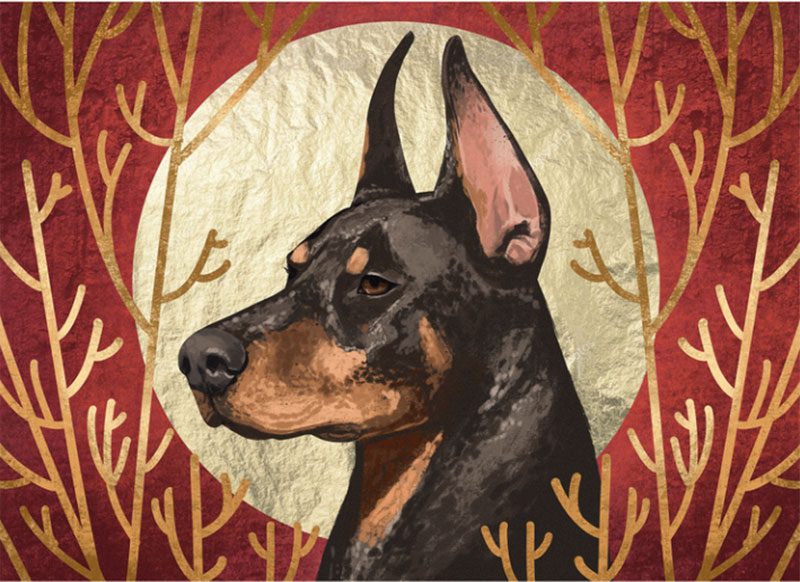
Time and effort are required to do well. Start with a light pencil, and don’t be afraid to erase it again.
You can erase your guidelines as you progress through the drawing process and draw heavier pencils. It allows you to stay on target and get rid of the unnecessary lines.
You can go back over your drawing in ink or marker when you’re ready and erase the pencil marks. That makes sure only the lines that you want are visible!
It often helps to illustrate digitally your dog illustration. You can have underdrawings and layers using layers in illustration programs. They can be shut off if you no longer need them.
Even if you need to work through different revisions or use supports such as projectors, lightboxes, or trace paper, it’s worth your time to create the best line drawing.
Focus on the face and expression
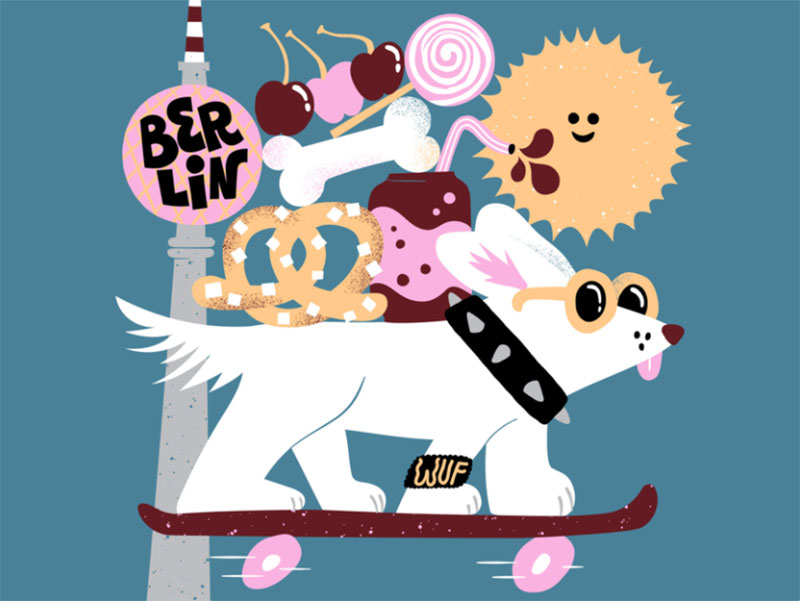
The correct location of the eyes is critical to observe. It’s relatively simple to maintain the right proportions between the eyes and nose if you draw a dog’s head straight-on.
That being said, it can be much trickier to draw the face in a slightly turned view. Not only do the eye changes in shape and scale at a certain angle, but the orientation also changes in comparison to the nose.
How do you know what your dog is feeling? From the smallest Chihuahua to the most prominent German shepherd, every dog has a spectrum of feelings. If you want to draw their emotions, you can exaggerate them a little bit.
The ears of a satisfied dog appear to sit back and may raise their tongue, which you may even exaggerate a bit. In comparison, an upset dog will have pinched ears, browned tint eyes, and even bared teeth. A sad dog’s ear is falling.
Find the soul in the eyes.
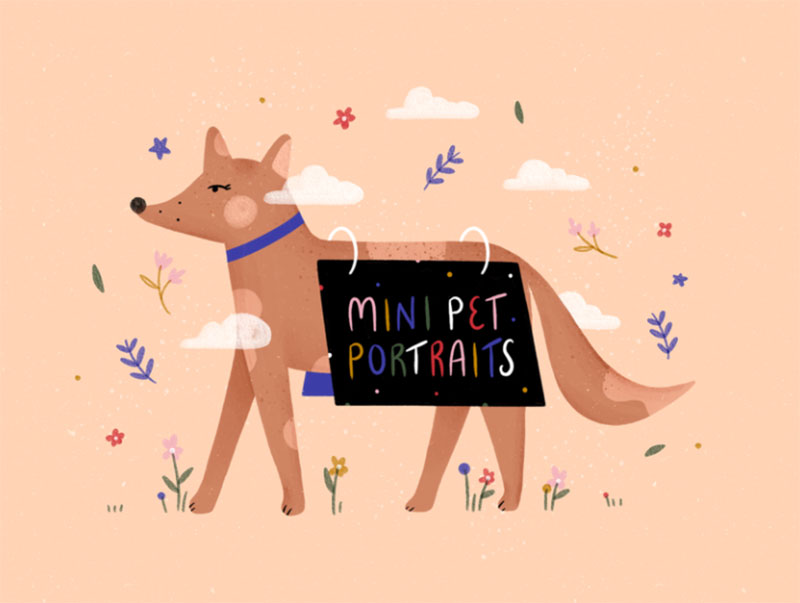
A dog’s eyes tell a great deal about its character and mood, so use the time correctly. The eyes will express how heavily lidded they are.
You can overdo it in your eyes a little more. A dog that’s a bit more reserved will have eyes. The eye reveals a calmer puppy, a bit less white. If you see the blanks of your eyes, they appear to be excited.
Fill in the blanks in the dog illustration
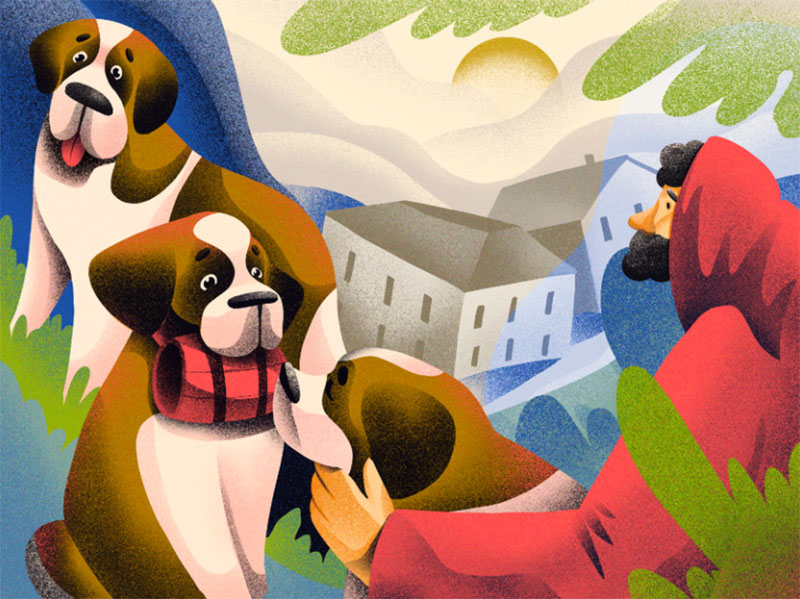
If you’re drawing digitally, start erasing your instructions or covering the outline layer. Then add more depth to the body’s contours, shading in the shadows suggesting combinations of muscles and fur.
Notice how the light strikes the nose and ears, and don’t forget the tail. For useful tips on how an adorable cartoon dog can add color and texture and which brushes to use
Drawing Dog Hair
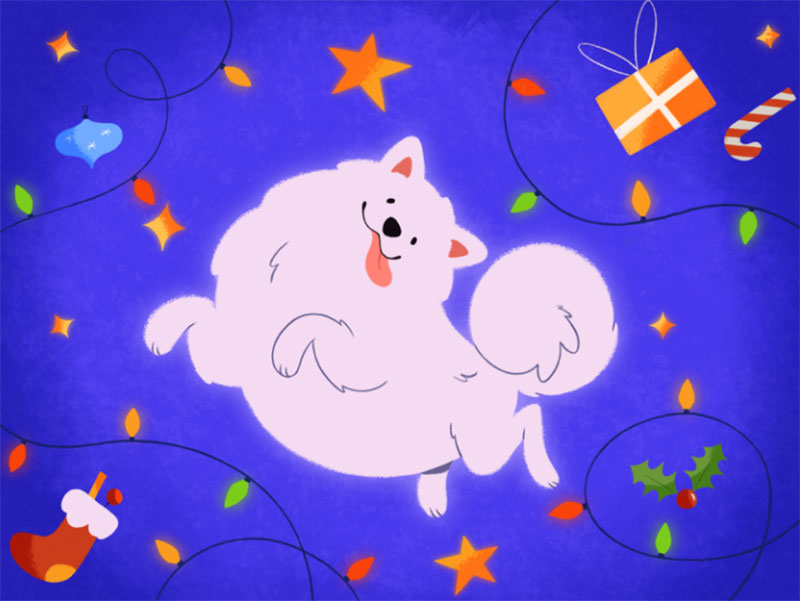
Besides, the overall body, color, and hair of the dog are the most outstanding characteristics. Get those right, and you’re more than halfway to getting your subject to a decent likeness.
However, hair is hard to draw. It’s their least favorite component of drawing portraits or animal art for individual artists. Here are some dog hair drawing tips:
Take additional time in your drawing to chart the fundamental patterns of hair development and values. Correcting mistakes at this point is much better than half-hearted after drawing.
Start with uniformly applied initial layers.
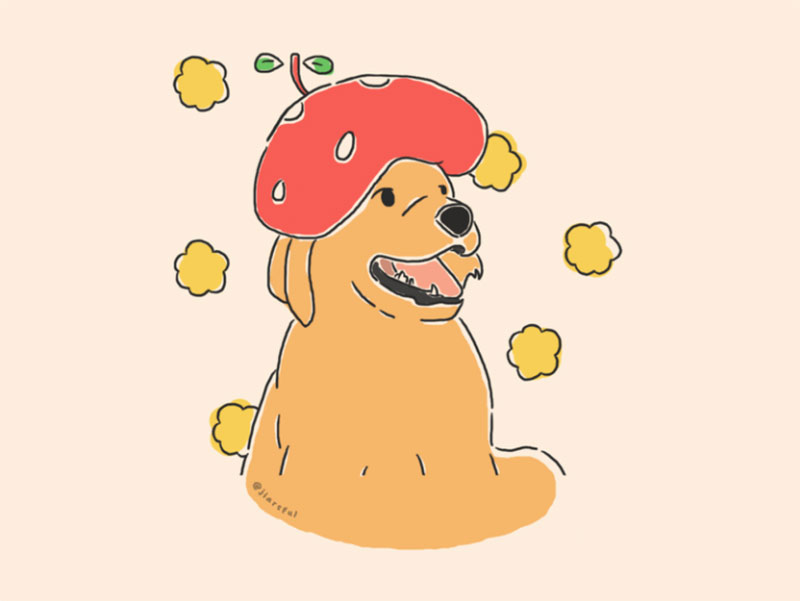
Do not try to draw every hair using directional strokes that follow the pattern of hair development. That’s going to make you disgusted and frustrated and won’t look all that nice, either.
Use hair-like strokes that are more noticeable, where color or value changes. Between the high and middle value or the standard color of the suit.
Additionally, over body contours, around our ears, neck, and ore, we determine the hair’s length and form.
Be not afraid to try various styles when you draw dog illustrations. Much as a dog needs time to train, your hand and eyes are qualified to draw a dog. Complete your original illustration through the days of your dog, and you will begin to develop your dog drawing skills.
Cute dog illustrations
Christmas Smokey
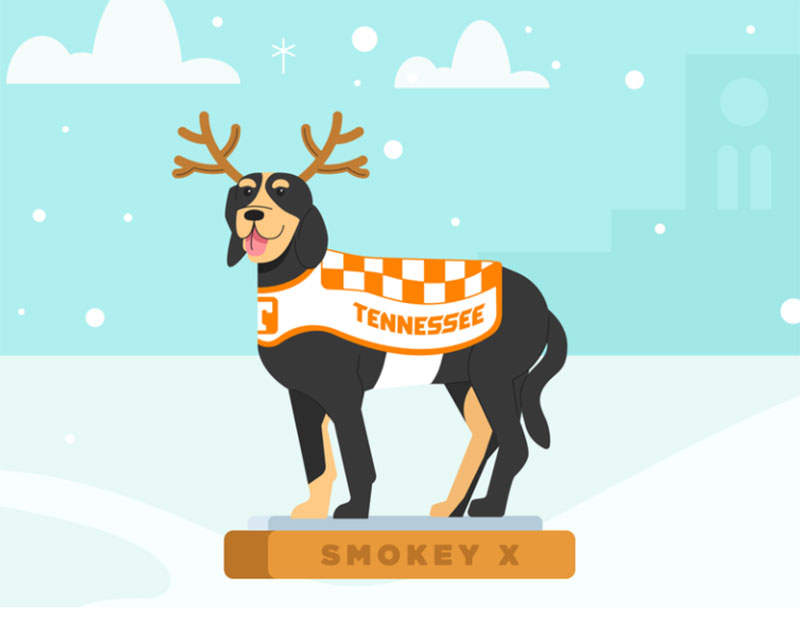
The first dogs to love the mailman
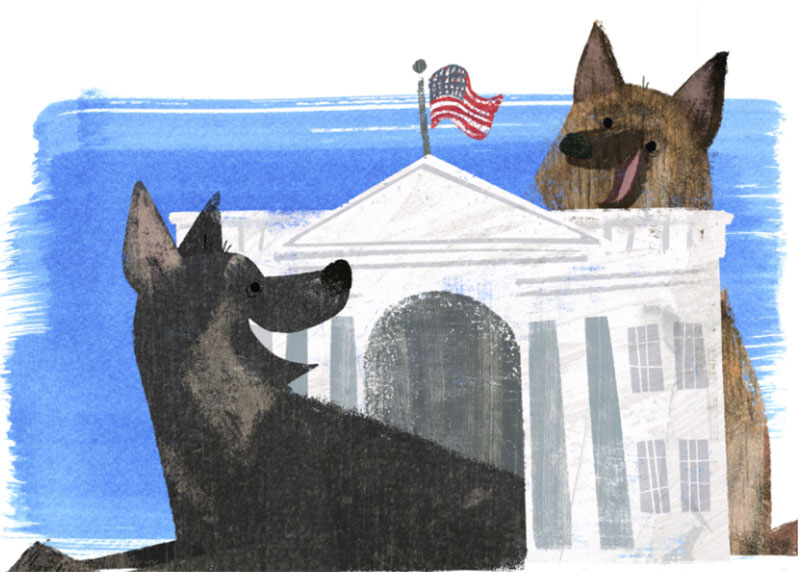
Samoyed illustration / dog / animal
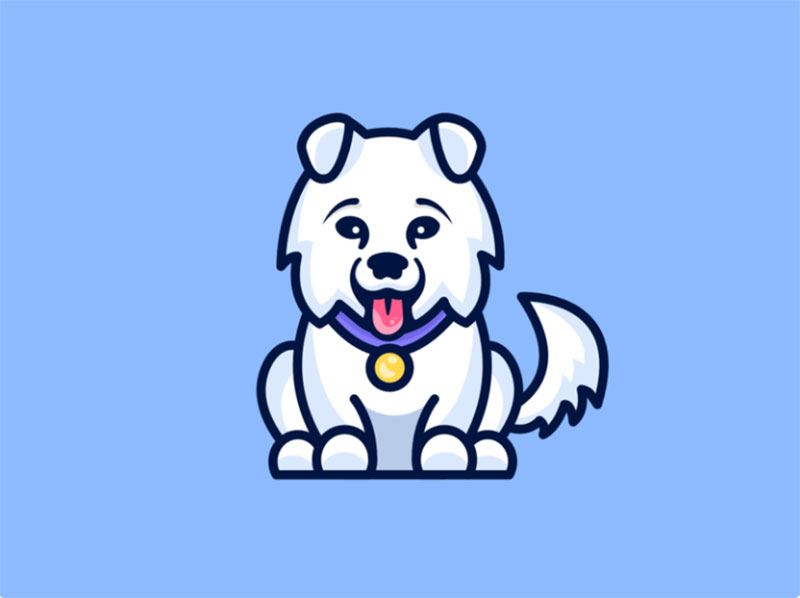
George the Sausage, studio
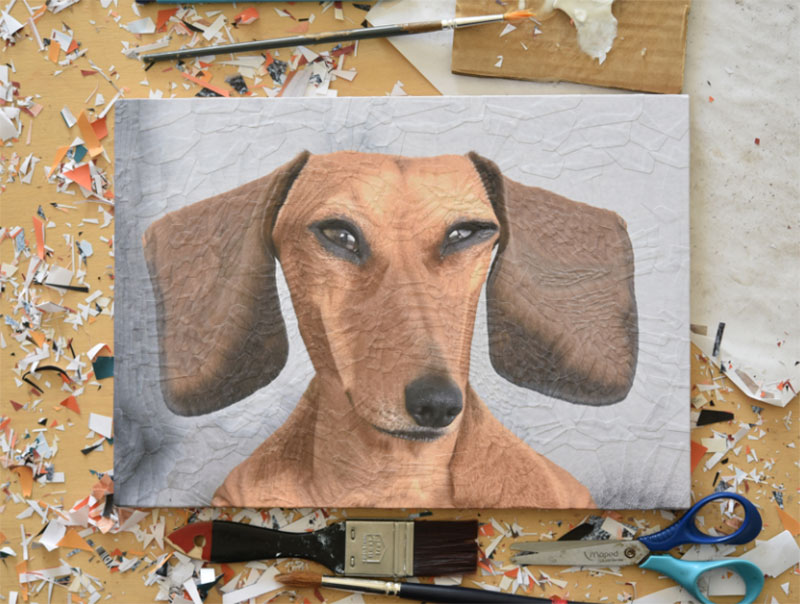
Beautiful dog
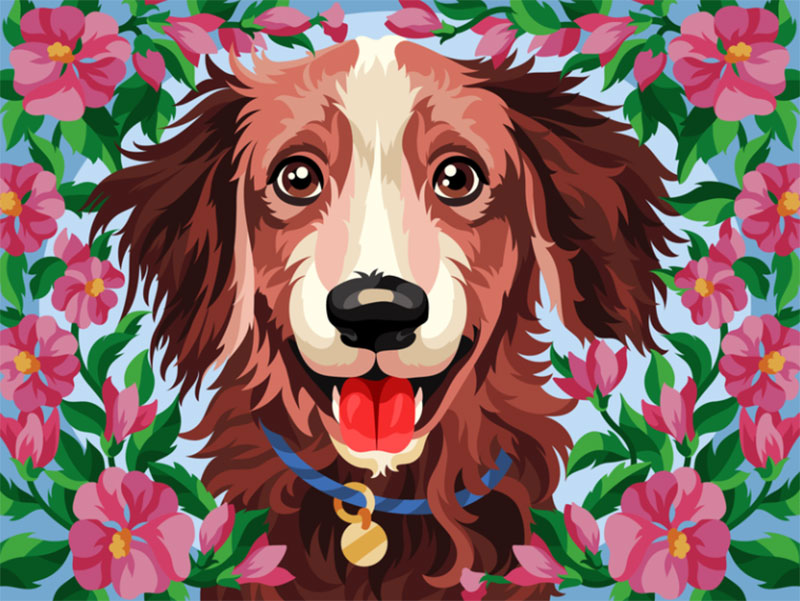
Molly Waves A Flag | Grounds & Hounds
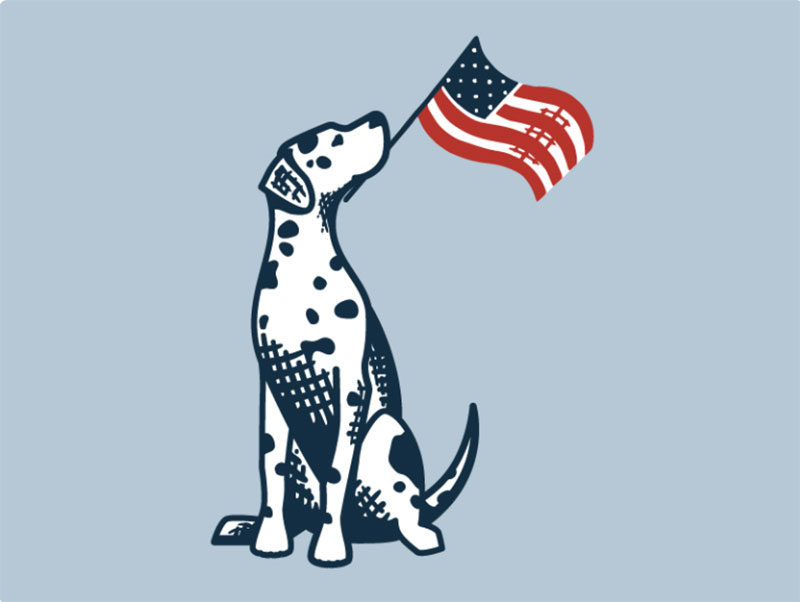
Bouncy
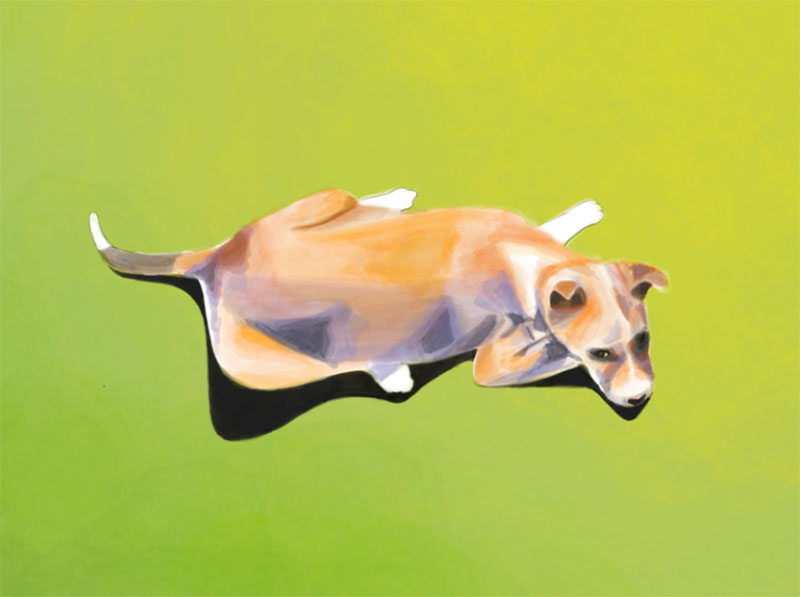
Escape With Your Sidekick | Grounds & Hounds
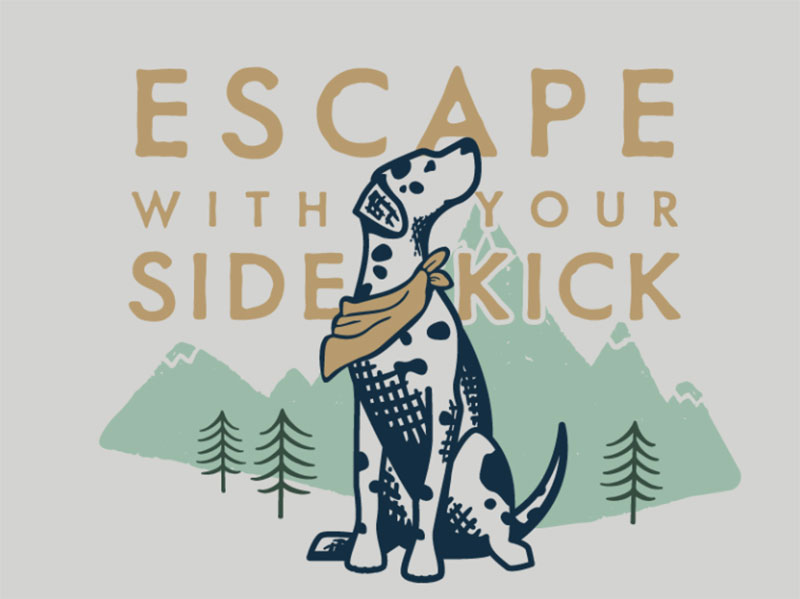
Shout-out to Harley “one-eyed”
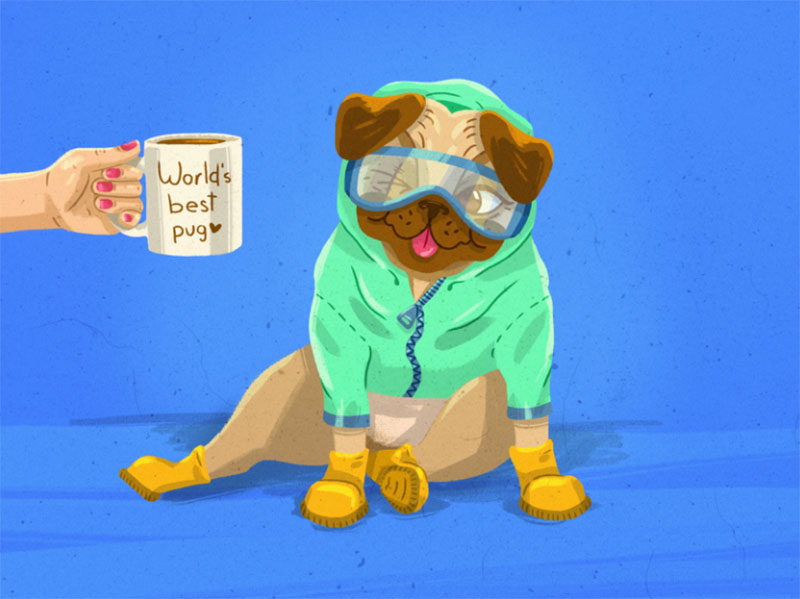
Tiny mixed media German Shepherd dog painting
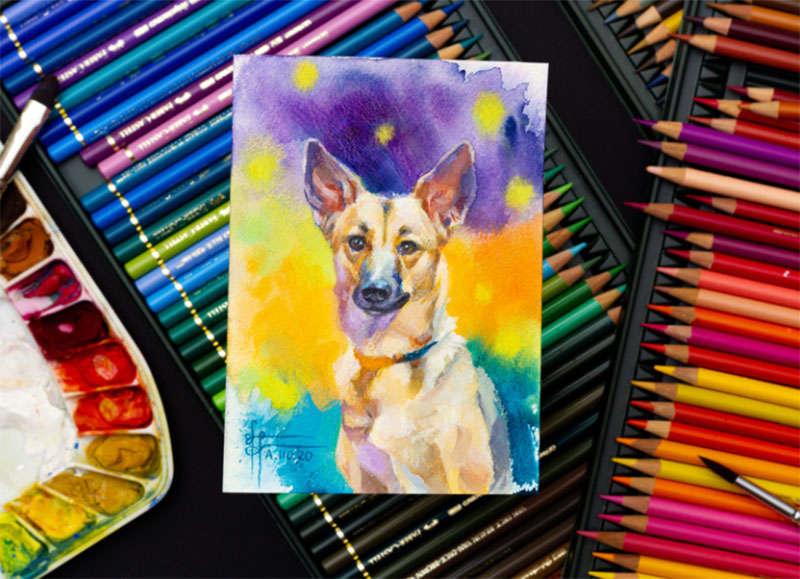
Yorkie poodle puppy
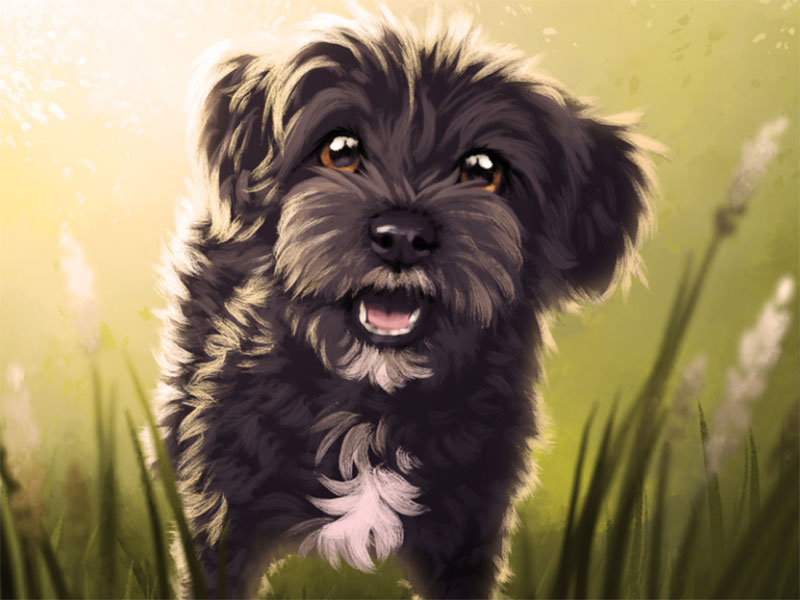
Wicho
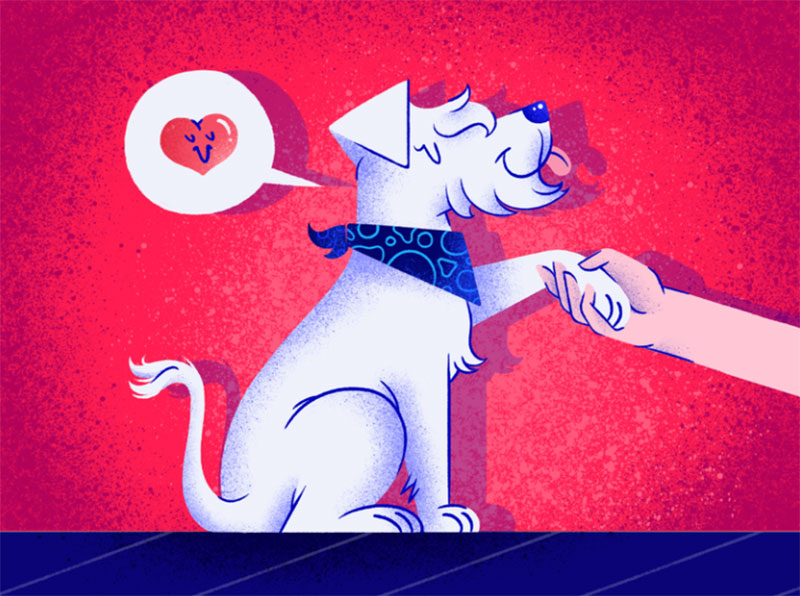
Doggo
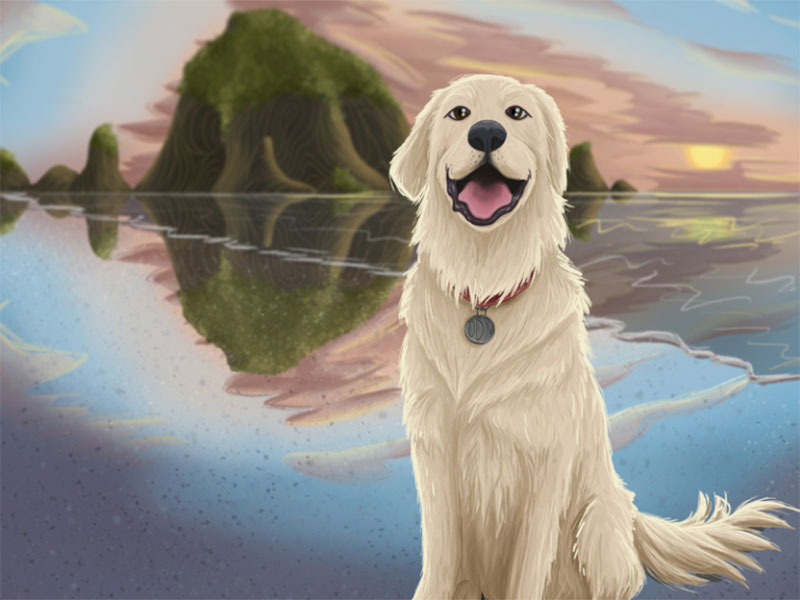
Alfred
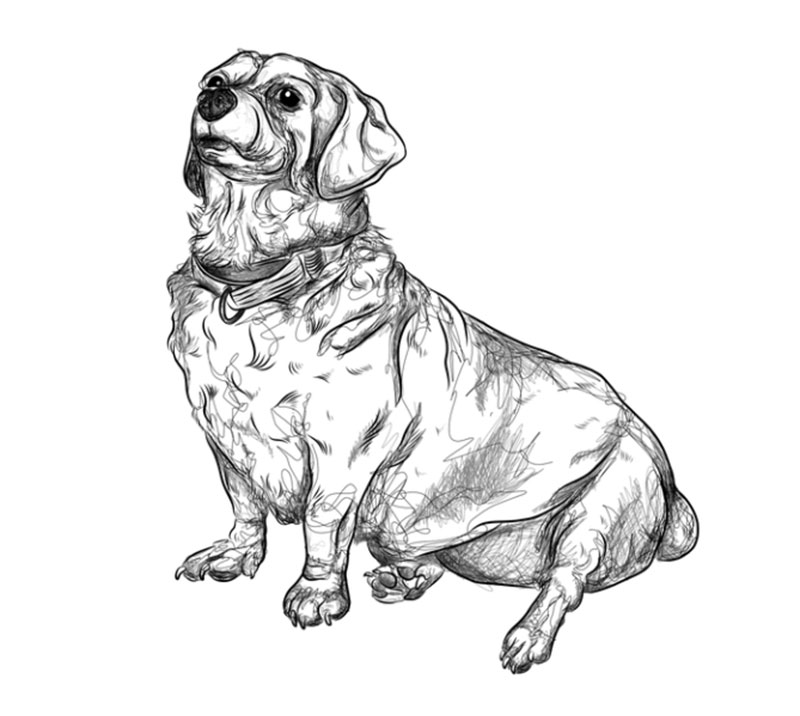
Christmas doggie – Pug
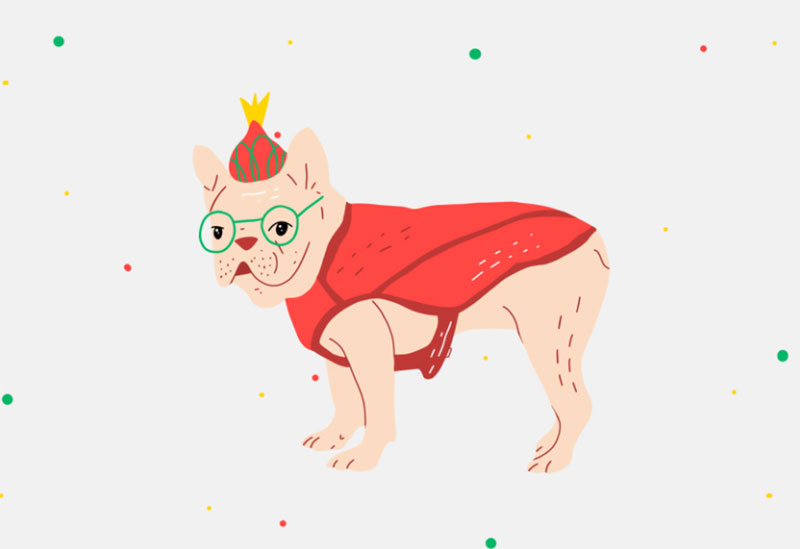
Pixel Art
![]()
Campfire Pup
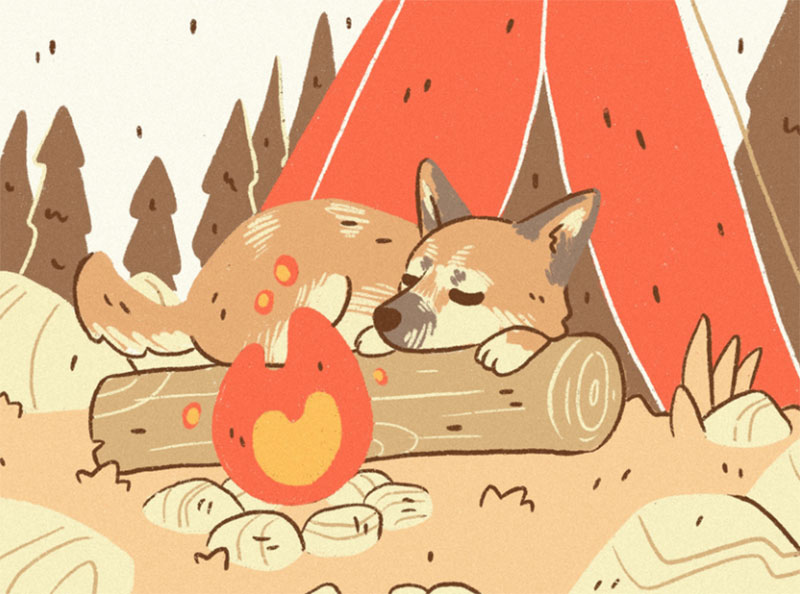
Dog with crown
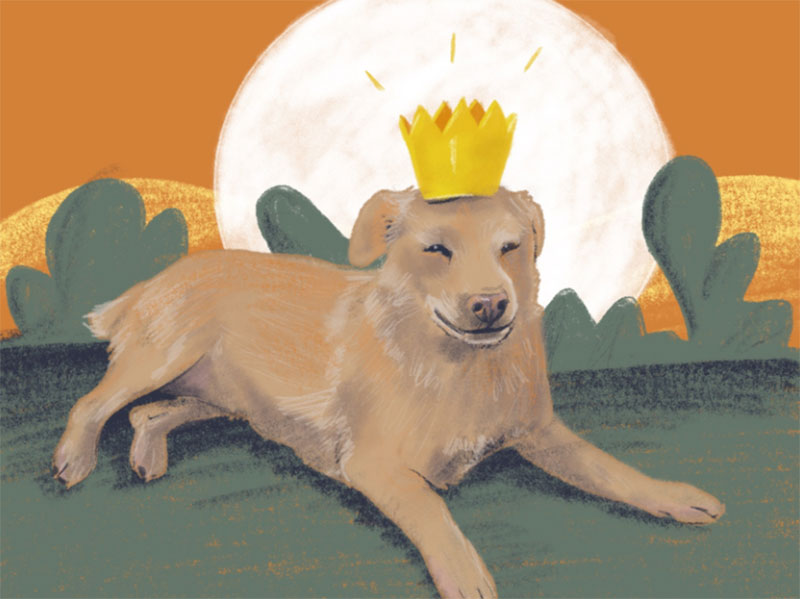
Dog Illustration
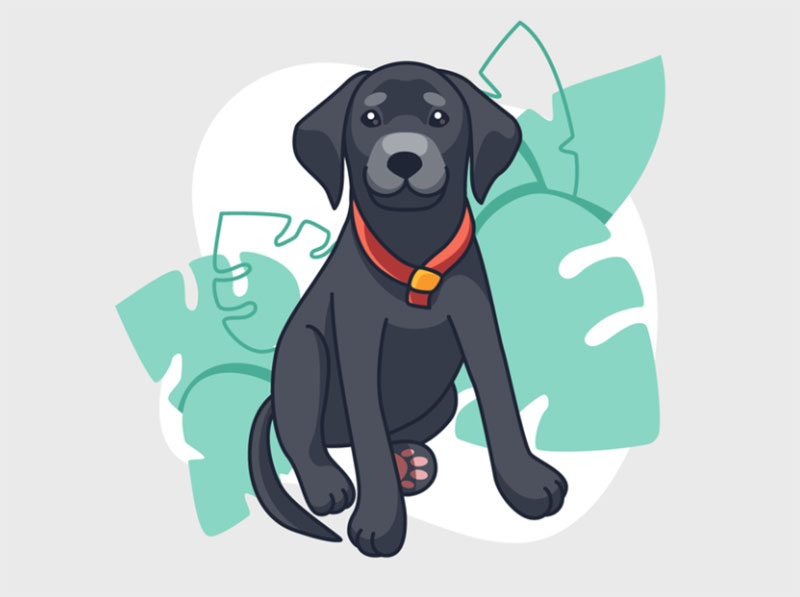
A dog playing guitar
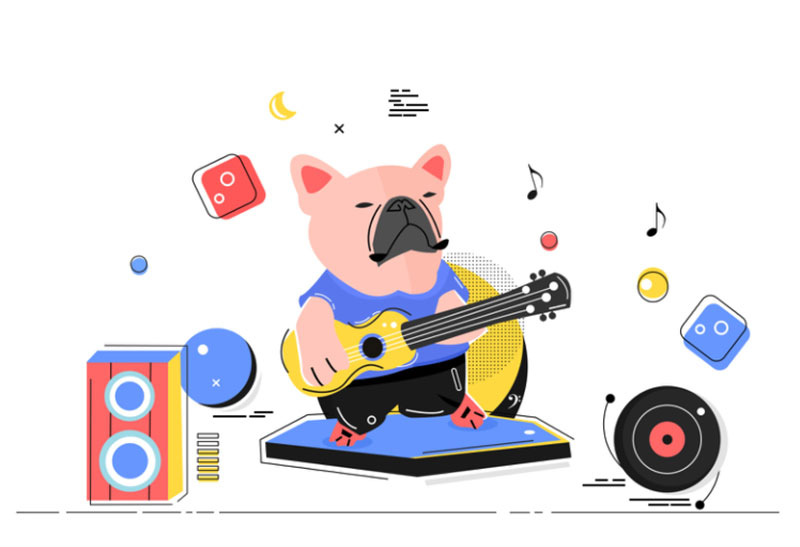
Dogs in love
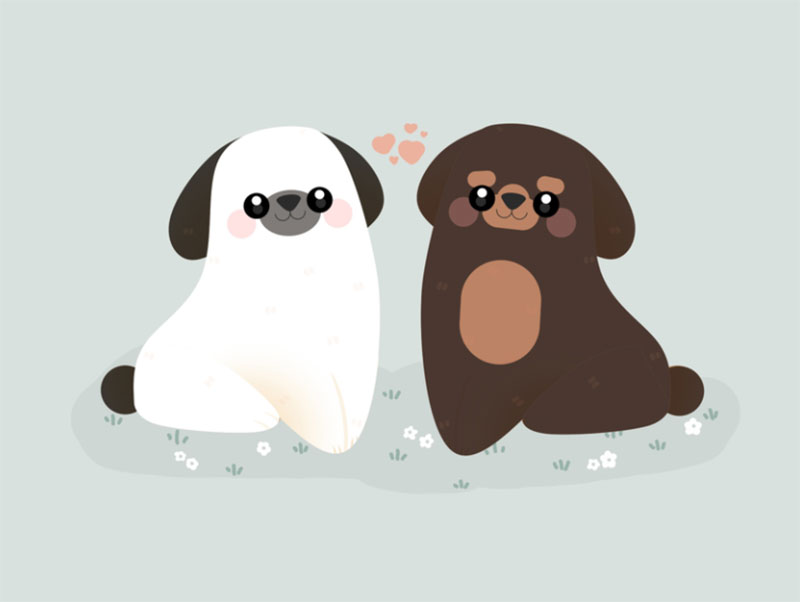
Hey There
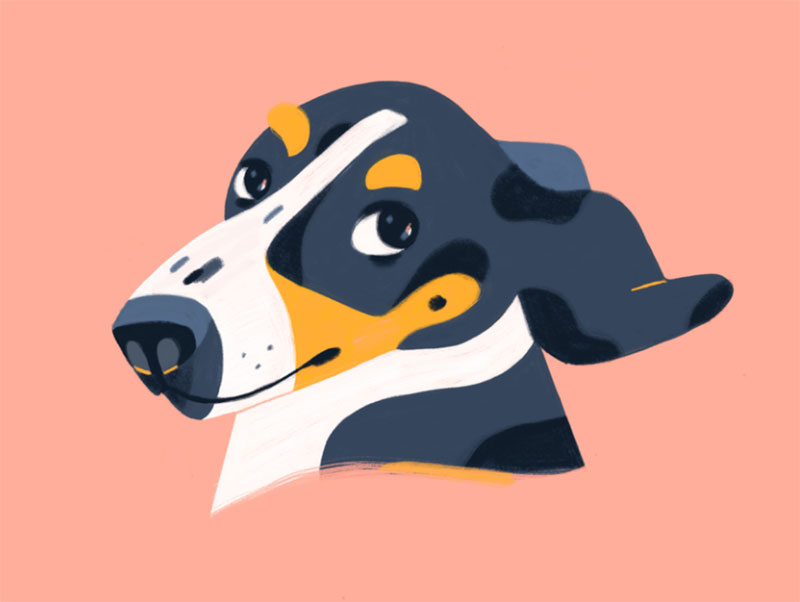
Dog illustration
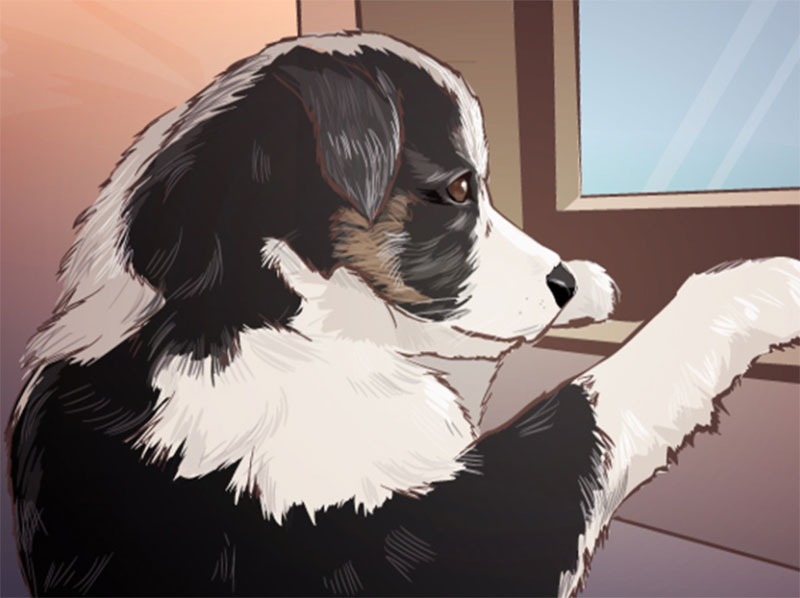
My Girl
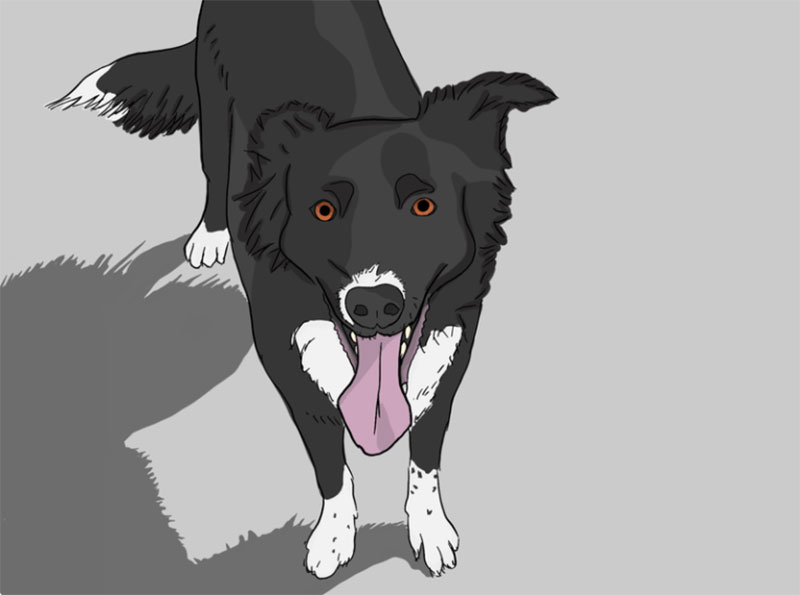
Nibiru
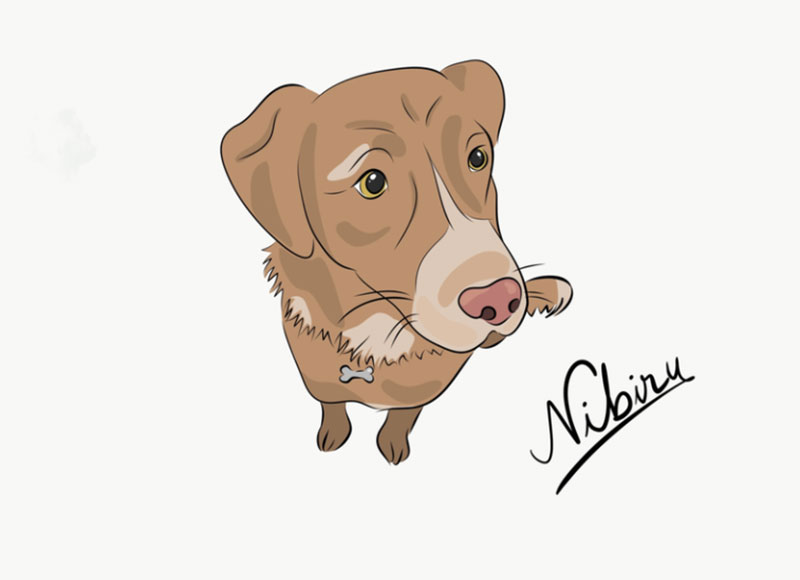
My little dog, Kodah!
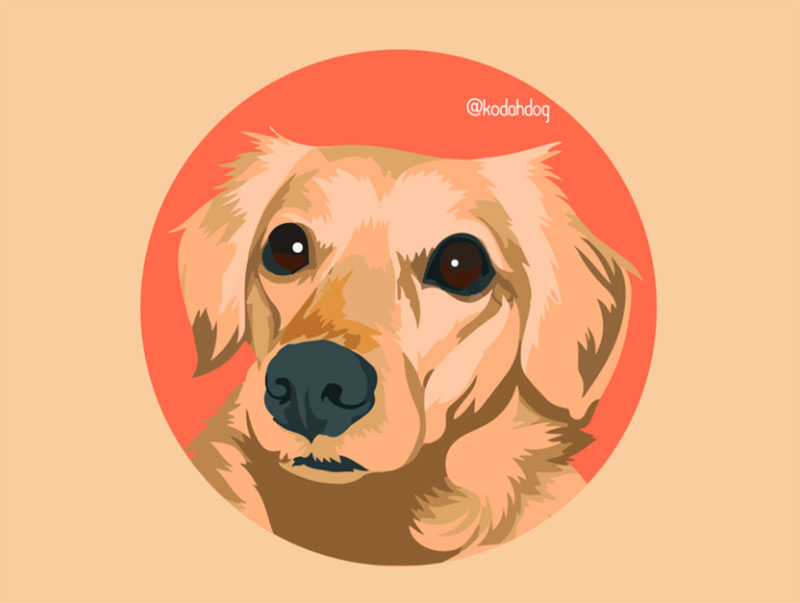
Hot Dog
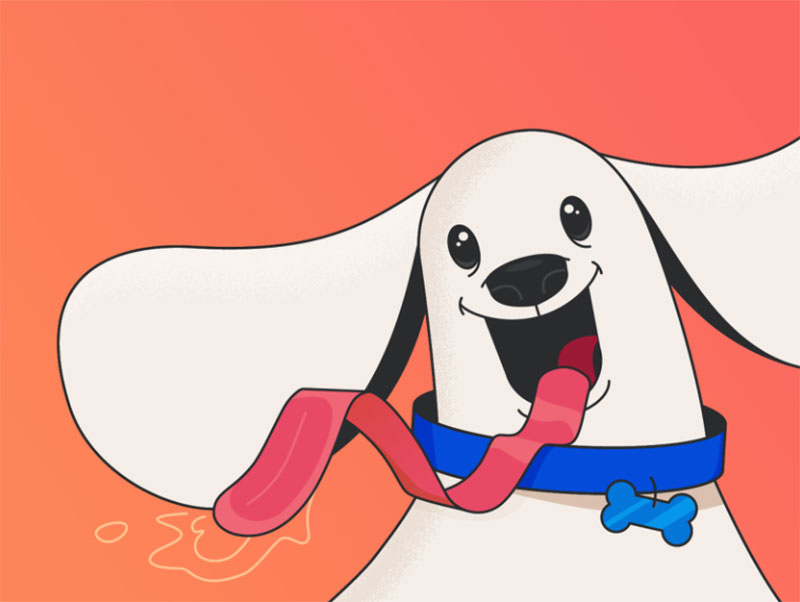
Doggie & florals
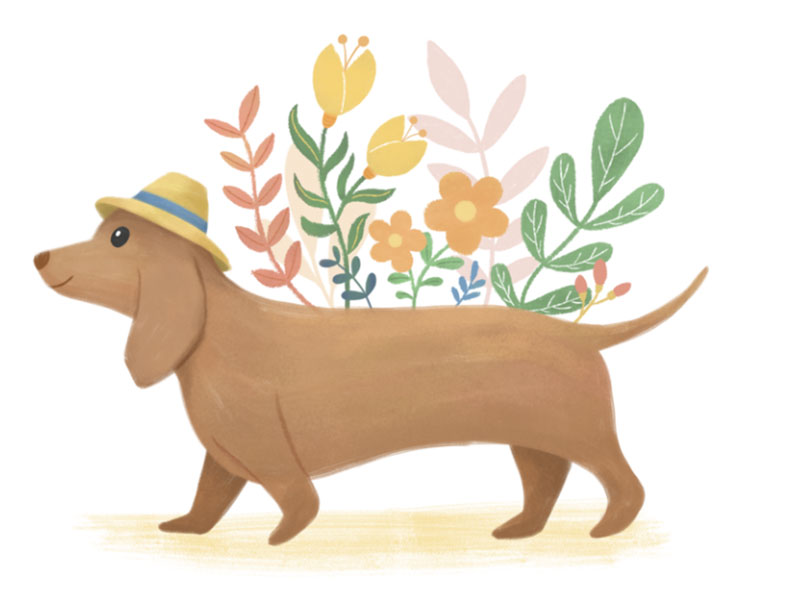
Haya
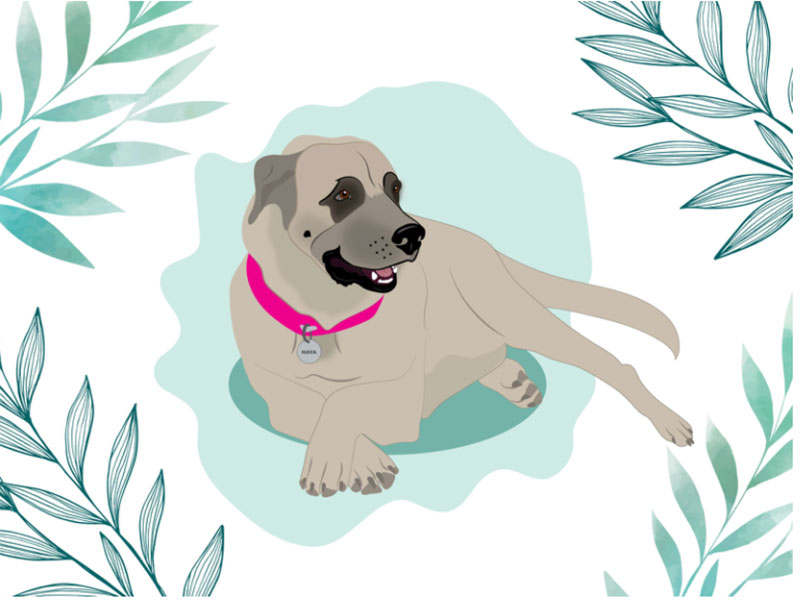
Pablo Escobarks
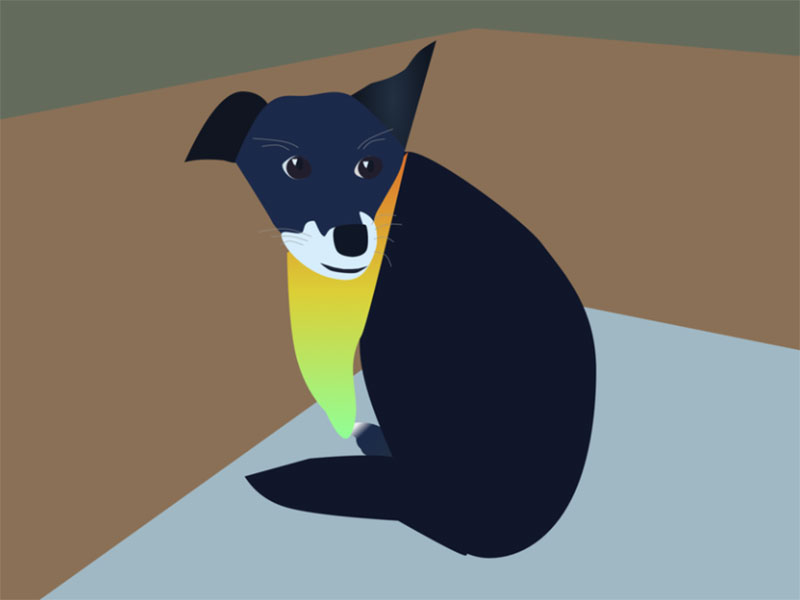
Lilly

Corgi Illustration
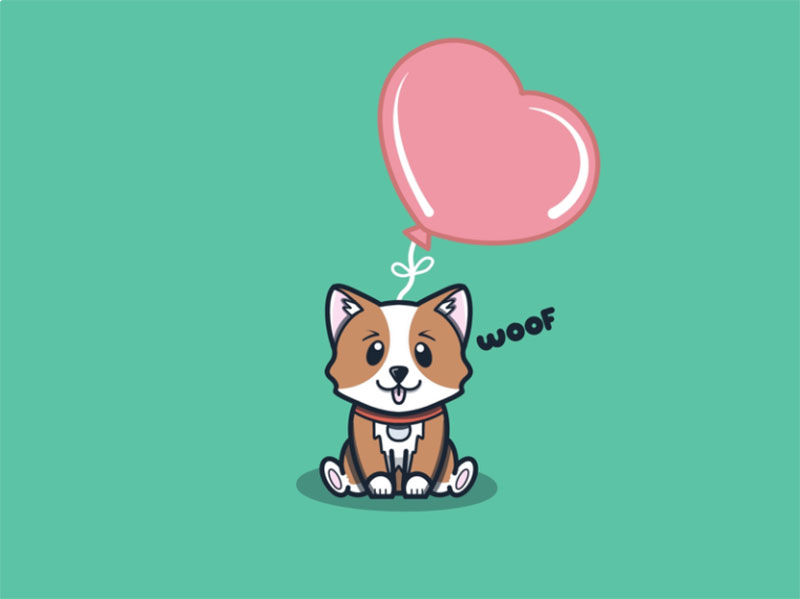
Golden Retriever Dog
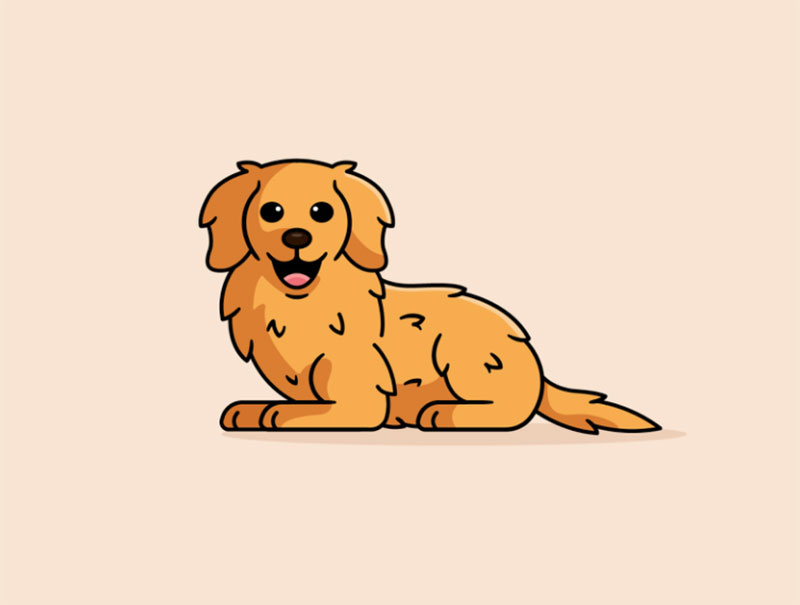
Having fun
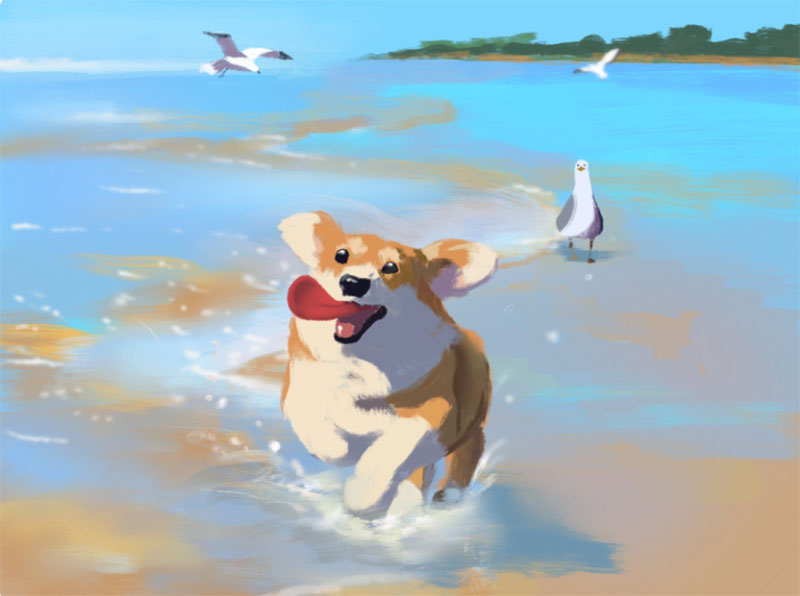
If you enjoyed reading this article with dog illustration examples, you should also check out these spring illustration examples.
We also created similar articles with summer illustrations, cat illustration designs, Thanksgiving illustrations, Christmas illustration designs, 3D illustrations, autumn illustrations, winter illustration examples, and lovely animated illustrations.